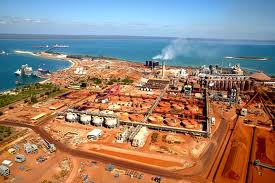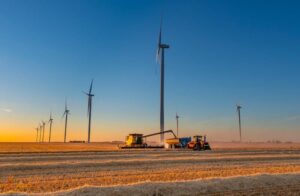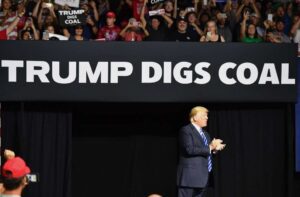The reported back-flip by the Abbott government on the Gonski education reforms shows that the new conservative government can, after all, do a backflip. Even a double one.
Could this extend to the carbon price? Abbott once was supportive, when the Coalition was trying to make itself indistinguishable from Labor on climate policies, as it pretended later to do on Gonski. Abbott then back-flipped on climate when he was installed as leader by a group of climate change denialists. Could he possibly change his mind again?
You would be forgiven for thinking that this could be the case, if you thought that sound policy and science had any influence on the debate. Yesterday, in the Senate inquiry into the Abbott government’s mass repeal of carbon and related legislation, Treasury officials revealed that they had not costed or analysed the Direct Action policy. Or even been asked to.
That’s probably because, as Climate Change Authority heads Bernie Fraser and Anthea Harris told the same inquiry last week, there is nothing there to analyse. Just a slogan, and a few ideas jotted down into a policy consultation document.
Independent Senator Nick Xenophon told the inquiry chairman he was surprised the modelling had not been done, AAP reports. “I must say, chair, I am quite surprised, shocked in fact, that the treasury hasn’t taken any modelling in respect of this.”
This came as the CEFC delivered its spirited defence of its role, dismissing the various criticisms leveled at it by the Abbott government, as we reported yesterday.
CEFC chairmwoman Jillian Broadbent said the institution could deliver half of the government’s abatement target, and deliver a net benefit to the government.
Asked on the ABC’s PM program why the market couldn’t do what the CEFC does, Broadbent said the financial sector simply didn’t have enough experience with clean energy, and needed to be persuaded or have their arm twisted to get them on the road.
“We’re investing and trying to develop the market’s appetite for participating in this field. Grants (as Direct Action proposes) have a very different role, and when you’re investing, you’re going to get the funds repaid and you’re earning a return on your money. Making a grant is just a straight expense,” she said.
“Now there’s a role for grants in emerging industries, but I really think the investment model of the Clean Energy Finance Corporation is a more fiscally responsible path to encourage the industry to be self-sufficient and wean itself off this government handout.
“We’re actually not a cost at all, but an earning. So every emission that we’re achieving has a return to the Government of $2.40, if it’s consistent with our current portfolio, whereas they (Direct Action’s emission reduction fund) are not going to get submissions where “We will pay you $2.40 if you let us pursue this investment”. So it’s very hard to compare a positive return with a cost. ”
So would the Abbott government consider a rethink on climate policies, and on the repeal of the CEFC, built around sound evidence? Probably not. This is not really about sound policy analysis, it is about ideology – as Abbott betrayed when he described this and international institutions as “Bob Brown banks”. And here’s how the Abbott advisers are being prepped.
The Australian newspaper today delivered an extraordinary editorial blaming the carbon tax for the possible closure of the Gove alumina refinery in the Northern Territory, even though the company involved, Rio Tinto, had never cited this as a reason, and any closure will likely happen after the carbon tax is repealed.
Nevertheless, the Australian sallied forth in a piece titled “carbon Tax’s dirty big legacy”.
It wrote: “The company has cited low alumina prices, a high exchange rate and substantial after tax losses as the key factors involve. Although Rio Tinto has not said so, Labor’s carbon tax must figure in the business equation.”
Now, why is that Rio has not blamed the carbon price? Quite possibly because their fuel costs are barely impacted by the carbon price.
The refinery relies on diesel which is astonishingly expensive (and dirty). The company had sought to change to gas, to lower costs, but decided that the price of gas is also going to be too high – nothing to do with the carbon price, but because the price of gas is doubling and possibly trebling due to Australia’s great LNG export rush. Apparently, Rio Tinto did not seriously entertain Geodynamics’ proposal to supply geothermal heat.
But mere facts won’t phase the Oz when it’s on a crusade. “It’s … one of the dangerous consequences, that many saw coming, of Labor’s crazy leap with extremist Greens in putting our companies at a disadvantage by moving ahead of the world on a misguided climate change adventure.”
And this on a day in a week that China, Australia’s biggest trading partner, launches emissions trading in its two key centres, Beijing and Shanghai. Good grief.








